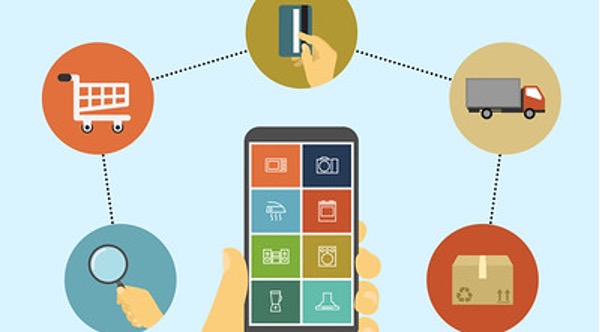The United Nations has recognized the needs of international consumers since it put forth its Guidelines for Consumer Protection (UNGCP) in 1985.[1] In 1998, the Organisation for Economic Co-operation and Development (OECD) brought e-commerce into the conversation with “A Borderless World: Realising the Potential of Global Electronic Commerce.”[2] The following year, the UN updated the UNGCP and, in 2015, again reiterated the need to protect e-commerce transactions.[3] The OECD revised and re-emphasized its e-commerce protection recommendations in 2016.[4]
However, as important as global leaders say protection for international e-commerce transactions is, twenty-five years after the OECD first recognized the need for this protection, e-commerce fraud seems to be continuing unabated, with annual worldwide payment fraud losses to businesses nearly tripling in the last three years alone.[5]
Protection for individual consumers is just as lacking, with very few practical options for recourse in the case of poor service, faulty products, or outright fraud.[6] In fact, the International Consumer Protection and Enforcement Network (ICPEN) states, “You should not necessarily expect any agency to pursue your complaint on your behalf. Many government agencies bring lawsuits to protect the public at large, but do not intervene on behalf of individual consumers.”[7] That said, customers within the European Union do have robust consumer complaint resolution options through measures enforced through the European Commission.[8]
However, the international community provides very little hope for disgruntled online shoppers elsewhere in the world doing business across international borders.[9] The Intergovernmental Group of Experts (IGE) on Consumer Protection Law and Policy, established by the UNGCP, has been active since 2016 but is tasked only with monitoring the application and implementation of the guidelines, conducting studies and reviews, and updating the guidelines as necessary.[10] The group is not tasked with enforcing the guidelines or providing recourse to victims of e-commerce fraud or poor products or services.[11]
Beyond allowing customers to file a complaint to document an issue that occurred, the ICPEN does not handle individual consumer complaints either.[12] Instead, the ICPEN encourages customers to call customer service; call their credit card company in the case of suspected fraud; hope the company is a member of a seal or insurance group; or try to take the company into an international court.[13] All four of these remedies are either easy for an unscrupulous company to resist, especially if the laws of its country do not require compliance, or, in the case of arbitration, extremely cost-prohibitive for the consumer. For that matter, the ICPEN doesn’t represent a huge portion of the world anyway, including only four of the world’s most populous countries—China, India, the United States, and Nigeria.[14] Membership is noticeably lacking from the other five of the world’s top nine most populous nations: Indonesia, Pakistan, Brazil, Bangladesh, and Russia.[15]
To continue to engage in international e-commerce, customers and businesses alike need to know they will be protected from bad actors looking to take advantage of unenforced guidelines. Until the UNGCP is better enforced, however, it makes more sense than ever to buy and sell within national borders.
[1] G.A. Res. 39/248 (Apr. 9, 1985), available at https://documents-dds-ny.un.org/doc/RESOLUTION/GEN/NR0/462/25/IMG/NR046225.pdf?OpenElement.
[2] OECD Ministerial Conference, “A Borderless World: Realising the Potential of Global Electronic Commerce”: OECD Action Plan for Electronic Commerce, SG/EC(98)9/Final (Dec. 18, 1998), available at https://one.oecd.org/document/SG/EC(98)9/FINAL/En/pdf.
[3] Dep’t of Econ. and Soc. Affs., United Nations Guidelines for Consumer Protection (as Expanded in 1999), United Nations (2003), available at https://unctad.org/system/files/official-document/UN-DESA_GCP1999_en.pdf; G.A. Res. 70/186, at 12-13 (Dec. 22, 2015), available at https://unctad.org/system/files/official-document/ares70d186_en.pdf.
[4] OECD, Consumer Protection in E-commerce: OECD Recommendation, OECD Publishing (2016), available at https://www.oecd.org/sti/consumer/ECommerce-Recommendation-2016.pdf.
[5] Value of E-commerce Losses to Online Payment Fraud Worldwide from 2020 to 2023 (in Billion U.S. Dollars), Statista, https://www.statista.com/statistics/1273177/ecommerce-payment-fraud-losses-globally/#:~:text=According%20to%20estimates%2C%20e%2Dcommerce,billion%20U.S.%20dollars%20by%202023 (last visited Mar. 12, 2023).
[6] Consumer Resources: Resolve a Dispute, ICPEN, https://icpen.org/resolve-dispute (last visited Mar. 12, 2023).
[7] What’s Next, ICPEN, https://www.econsumer.gov/en/SelectAType/1#crnt (last visited Mar. 12, 2023).
[8] Online Dispute Resolution, Eur. Comm’n, https://ec.europa.eu/consumers/odr/main/?event=main.consumer.rights (last visited Mar. 12, 2023).
[9] ICPEN, supra note 7.
[10] Intergovernmental Group of Experts on Consumer Protection Law and Policy, United Nations Conf. on Trade and Dev., https://unctad.org/topic/competition-and-consumer-protection/intergovernmental-group-of-experts-on-consumer-protection (last visited Mar. 12, 2023).
[11] Id.
[12] ICPEN, supra note 7.
[13] More Steps to Take, ICPEN, https://www.econsumer.gov/en/OtherSteps/OtherSteps/2#crnt (last visited Mar. 12, 2023).
[14] Countries in the World by Population (2023), Worldometer, https://www.worldometers.info/world-population/population-by-country/ (last visited Mar. 12, 2023); Who We Are: Member Organizations, ICPEN, https://icpen.org/who-we-are (last visited Mar. 12, 2023).
[15] Worldometer, supra note 15; ICPEN, supra note 15.


